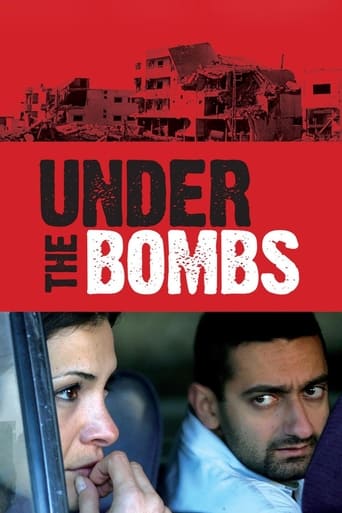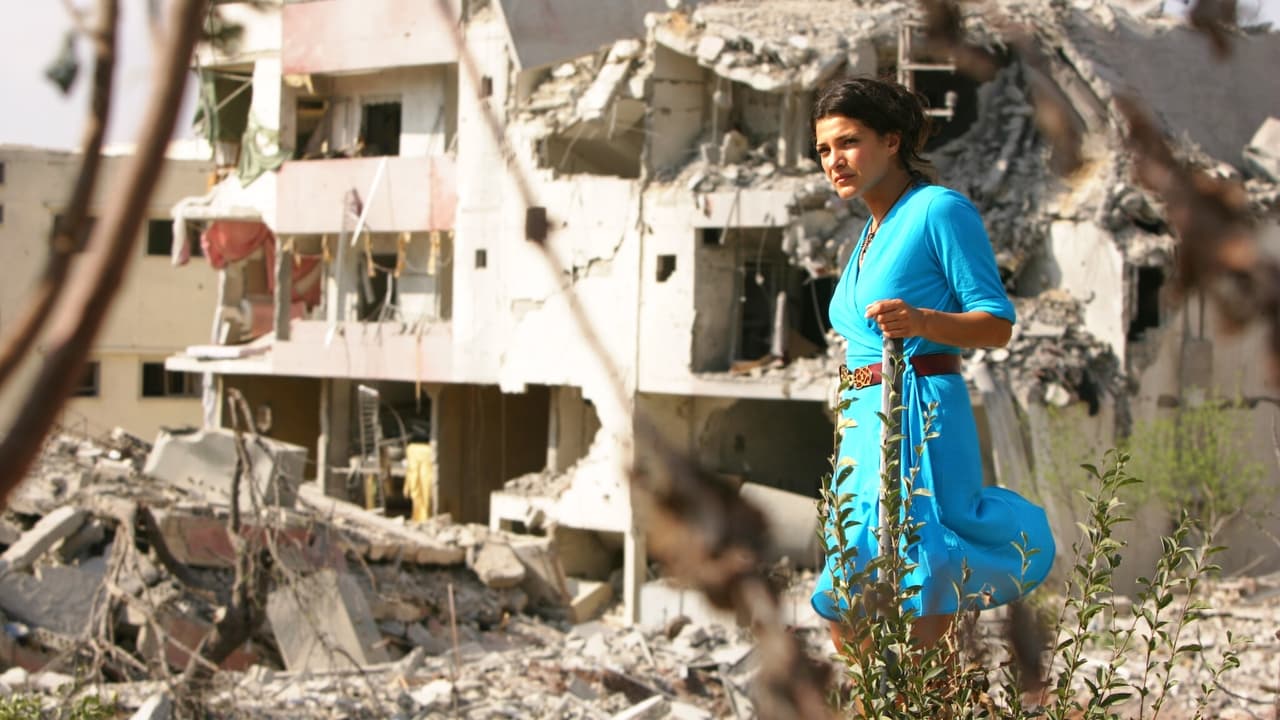Hot 888 Mama
. . . exactly how UNDER THE BOMBS is a fair and balanced film that has a right to be exhibited in United States movie theaters, as opposed to pure hate speech propaganda from the folks who brought us 9-11, akin to the Neo-Nazi hate speech universally banned by all proper-thinking civilized countries. The one funeral scene shown in UNDER THE BOMBS actually is an anti-American hate rally, complete with chants of "Death to American, death to the Great Satan." It has been widely publicized by the world's most respected news organizations, such as 60 MINUTES, that 83% of the curriculum the alleged children victims being depicted in UNDER THE BOMBS consists of instilling a life-long hatred of Jews and Americans, which occasionally manifests itself in the form of kids younger than the dead ones in this movie (HOW they actually died--for instance, an anti-aircraft round falling short and hitting an ammo dump in a school gymnasium, one of the most likely possibilities TOTALLY IGNORED by director Philippe Aractingi) fatally ambushing peacekeepers on the border. Aractingi spends his entire film trying to make people such as Vanessa Redgrave feel sorry for what folks living in the Dark Ages apparently are inviting upon themselves in the most desperate ways (fueled by one of the world's highest birthrates, to support Pyrrhic "victories" based on tactics similar to those used by army ants). Unfortunately, a significant number of Oscar Awards voters and Hollywood fifth columnists insist on dragging Trojan horses such as UNDER THE BOMBS within the walls of Fortress America.
Genevieve_X
I came across this on cable television in Australia, perhaps not so ironically at the same time that Israel was bombing Hamas in Palestine in January 2009. Possibly a deliberate programming choice - perhaps not. This is an interesting film. Without knowing anything about its production, it is apparent that some of the footage is real, and many of the cast are actual civilians affected during the Israeli-Hezbollah/Lebanon war of 2006. What is central to the film is the developing relationship between Zeina, a woman looking for her son, and Tony, a taxi driver with a colourful past. I must admit I did particularly like that the two main characters are not perfect, and indeed their flaws further serve to foster a sense of identification with them. They are not your usual Hollywood war victims. Zeina is a woman who has sent her young son to the South of Lebanon to escape a messy divorce and supposedly philandering husband. Tony the taxi driver is someone trying to make a spare dollar by selling black market medication and there are several references to a brother with a criminal history in Israel. What I most enjoyed about "under the bombs" was the raw reality of the story and the lack of morality and bias. The victims of all sides of the war are clearly shown and no one is attached to any particular side. Nada Abou Farhat is a naturally beautiful central actor, and I mean "naturally" in that she doesn't present some kind of blow-dried version of war. She is a powerful actor being able to portray the anguish of a mother seeking a lost child. Similarly Georges Khabbaz is a real character - not your sexy leading man - in fact he is a relatively average looking man, not unattractive, but definitely not with stereotyped leading man good looks. He clearly passes as a realistic representation of a Lebanese taxi driver and is quite likable. He really does look the part! Also, the support cast are clearly locals, and I got the sense that many of the stories told were real. The child actors are particularly good.The relationship between Tony and Zeina is interesting, but with some flaws. It is clear that Zeina is a beautiful and quite sexy woman, wearing a figure hugging dress that seems somewhat out of type for the south of Lebanon, but this is okay because it further creates Zeina as a individual ... obviously a woman from the South of Lebanon who has married a 'man of the world' and left her traditional life behind. I wonder whether Tony falls a little into a stereotype of the Arabic male (I would be interested in Arabic men's opinion on this), in that whilst he feels for Zeina's predicament, he sees her as a sexual being. It is often the case that people form intense relationships in traumatic situations, but it is a wonder whether Tony's feelings are totally realistic. In one scene, he is lamenting that Zeina is "a woman looking for her son but who won't acknowledge me!" (paraphasing) when a journalist approaches him for a fare while Zeina is looking for her son. I wondered whether this was a little unrealistic. Would an Arabic man let out emotions like these after knowing a woman for two days? Maybe ... but I wondered whether the romantic relationship was paying lip service to traditional cinematic storytelling. I actually feel the film would've benefited more from this romantic tension being far more 'beneath the surface'.What I did really love about this film was its simplicity. It is a simple demonstration of the suffering of people in war. Zeina's grief, when she finds her sister is dead, is palpable and intense to watch. Similarly, the end of the film is bitter and lends itself towards the reality of war. I would recommend this film as a good example of cinema verite and an important contribution to showing the victims of war in a way that doesn't use the usual soft focus, blow dried Hollywood stereotype. Nice work!Gen_x
laminee
This is a really good film. And due to the fact that it was shot during the actual crisis gives it a documentary feel. Complimented with that is the superb acting of the lead characters. It's like real life unfolding on screen - the rampant destruction, needless pains & senseless atrocities of the war. The rustic music also suits the storyline perfectly.A couple sequences though didn't quite fit into the flow of the story: - the sex scene seemed unnecessary and the breaking down of the car at the very end seemed like a little forced upon melodrama.Would recommend this movie to anyone who is in a mood to find out how the Middle East politico-religious crisis affects a common citizen.
firemanban-1
We were fortunate enough to see this film at the Sundace Film Festival, and I have rarely seen a more accomplished effort at portraying one of the worst atrocities of the past decade. Director Philippe Aractingi's ability to bring two feature actors into Lebanon on the tenth of thirty-three days of brutal Israeli bombing is nothing short of magnificent. Before seeing the film, I thought it may be a better case study of the war-torn environment left by the indescriminate bombing of civilian areas by the Israeli Army, with some actors thrown in at the last minute in a patchwork attempt to create a feature film. I was painfully wrong. This film is a compelling character drama told through the eyes of real people experiencing the worst kind of hell on earth. With unbelievable footage of the actors in the middle of the ongoing conflict, international media coverage, and the U.N. relief mission, Aractingi deftly (and powerfully) combines his fictional characters will real life survivors to tell the story of a mother trying to find her son in the ruins of war-torn Lebanon. The main character's decision to hire the initially lecherous, but ultimately compassionate and sympathetic taxi driver Tony to take her on her journey results in a touching tale of humanity and the place of individuals in a world beyond they're control. When asked about his filming techniques in the Q&A after the movie, Aractingi expressed his desire for the movie to be seen for the message it carries, as it should be.


 AD
AD






